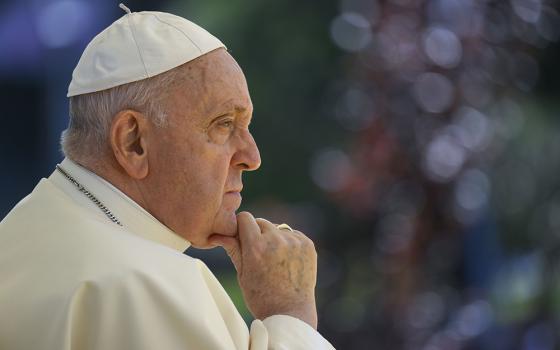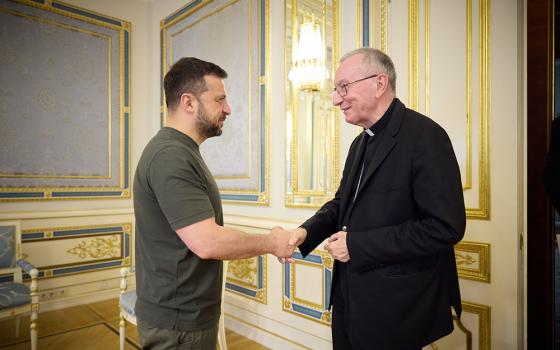I suppose that big things usually start small, but yesterday's session on "bishops and bloggers" at the USCCB meeting illustrated just how far we have to go before the blogosphere can effectively become a part of the New Evangelization. As I entered the room, I noticed that all the bishops were seated on one side of the room and all the bloggers and journalists on the other side. Call me silly, but if the value of the blogosphere is that it can bring people from diverse areas together in a common space, you would think the seating in the room might have reflected that.
The highlight of the proceedings was a report on Catholics and their use of social media and blogs, presented by Mark Gray from CARA - the Center for Advanced Research on the Apostolate. One of the findings - that people expect to be entertained when they are surfing - stuck in my craw. No one wants dull prose, to be sure, but I do fear that we live in an age when pictures and videos are considered so essential, and that such an age will have difficulty with a faith that is rooted in the Word. I also thought it funny that the survey showed that people want to know what is and is not authoritative on the web. Of course, this blog is always authoritative! LOL! Seriously, this piece of datum reminded me of a comment Archbishop J. Augustine DiNoia made at the meeting with young theologians in September 2011, that in all the time he worked at the bishops' conference as their chief staffer for the doctrine committee, reporters would call to find out if a given papal or episcopal statement was "infallible" or what its level of authority was, but no one ever asked if the statement in question was true.
The Catholic blogosphere has produced wonderful things, such as the blog put together by Millennial Catholics and the Catholic Moral Theology site. A friend once noted that twenty years ago, most reporters at secular outfits had one name in their rolodex when a religion story came along, Martin Marty. Now, there are many sites with good, thoughtful, smart analysis. But, there is also a lot of crud. That is the nature of a communications media, like the web, that is so profoundly small-d democratic, you get the good with the bad. But, that points to the deeper question. We humans create media, but the media in turn form us. For the Catholic blogosphere, a medium that emphasizes speed and sharp, clashing opinions collides with a Church that moves very slowly and emphasizes consensus. It remains to be seen how that will affect evangelization, catechesis and theology in the years ahead.




